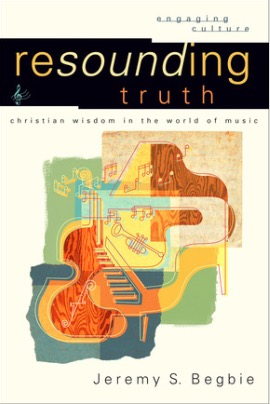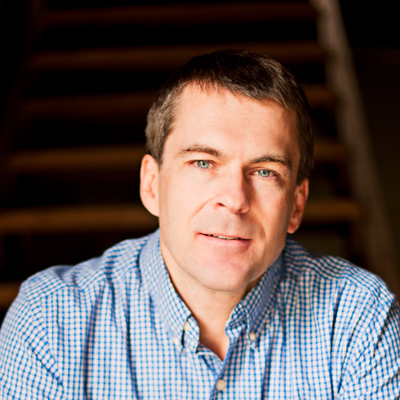
In April 2002, the Center for Christian Study at the University of Virginia, which many of us fondly refer to as the mother ship of the Christian Study Center movement, held a conference entitled “Music & the Spheres”—a clever mash-up of Shakespeare’s “the music of the spheres” and Abraham Kuyper’s concept of sphere sovereignty.
Having just founded Chesterton House two years earlier, I thought this a useful conference to attend. For several reasons, the weekend event also proved memorable—the speakers and performing artists wowed the crowd, the vision of “voicing creation’s praise” in all that we do came across powerfully, and, because Chesterton House had no budget whatsoever at the time, I was sleeping in my car.
Philosopher-pianist Bill Edgar and theologian-pianist Jeremy Begbie each delivered mesmerizing musically illustrated keynote addresses, the likes of which I had never before heard. Five years later we hosted Edgar and his trio’s vocalist Ruth Naomi Floyd for the “Heaven in a Nightclub” concert in New York City, and around that same time we took a vanload of students to the International Arts Movement (IAM) conference, also in New York City, in part to hear Begbie. One of those students started a blog inspired by Begbie’s keynote, and another has gone on to study with him (see Stephanie’s published interview with Begbie, “Minister of Music.”)
Begbie and Edgar are the sort of Christian scholars whose work Chesterton House exists to promote, and our residents recently read and discussed Begbie’s Resounding Truth: Christian Wisdom in the World of Music. Making music, Begbie emphasizes, begins not with expression but with discovery—with paying attention to the way the world is. The counterpoint of Bach, for example, though inventive, is rooted in acoustical realities. Music thus suggests an alternative to both modern and postmodern ways of thinking about creativity. Whereas “the impulse of modernity has been to dominate nature” and “the inclination of postmodernity is to say that our evaluation of nature is entirely a matter of human choice,” musicianship consists largely of adapting and conforming to pre-existing realities.
Begbie’s methodology is fascinating, because he asks not only what faith teaches us about music, but what music teaches us about faith. Consider, for example, the issue of freedom. In contrast to the modern view of freedom as choice or absence of restraint, a Christian view of freedom rather suggests “human flourishing is found in a responsible relation to constraints.” This is illustrated equally well by composers who have attempted to ignore constraints without much success, such as Schoenberg and Boulez, as well as by blues pianists for whom improvisation effectively builds upon a chord pattern that is already given. (Elsewhere Begbie writes of the “jazz-factor” of creation—“that spontaneous element in the world and in human life that reaches its apogee in the unforced, unpredictable creativity of Jesus Christ.”)
His point is that what we find to be true in music—that “structure enables freedom”—is true of life in the world more generally. “For the Christian, to be free is not fundamentally to enjoy some supposedly blank space before us, or to increase options, but to be at peace with God and one another and thus at home in a God-given world.” Doctrine and discipline, Chesterton once said, “may be walls; but they are the walls of a playground.”
All of this has profound implications for how we live, and not least of all for relationships. The modern view of freedom is a “model of mutual exclusion—‘the more of me, the less of you.’” In this view, God’s sovereignty poses a threat to human freedom. “Much modern atheism and contemporary suspicion of Christianity,” Begbie writes, “has been driven by just such an assumption—there must be hardly a single college campus in North America or Europe where this belief will not be regularly met.”
Music, however, subverts this assumption. “We recall one string setting off another string; the more the lower string sounds, the more the upper string sounds in its distinctiveness, the more it vibrates in the way it was created to vibrate. Such is the nature of the freedom God grants: the more God is involved in our lives, the freer we shall be, liberated to be the distinctive persons we were created to be.” I am reminded of C.S. Lewis’s realization that when Charles Williams died, Lewis had less, not more, of their mutual friend J.R.R. Tolkien, because Williams brought out a side of Tolkien that nobody else did.
The cosmos is a symphony and Christians are “polyphonic people” who find unity amidst real diversity. At Pentecost, the Spirit worked in people who were closed to each other due to differences in culture, language, or race, and opened them to one another by opening them to Jesus Christ and God the Father. Those present “tuned in to one another” without having their uniqueness erased. Again, the Christian way is presented as a third way: “In Pentecostal polyphony…both the suffocating individualism of modernism and the erasure of personal uniqueness of postmodernism are overcome. … I discover who I am in koinonia.”
As Psalm 19 makes clear, creation itself is called to sing God’s praise. Our calling, in turn, is “to make music in the midst of creation’s own music, to voice creation’s praise. Our privilege is to extend and elaborate the praise that creation already offers to the Creator.” And again: “In the midst of this breathtaking praise of creation, the speechless paean of the cosmos to its Creator, the Christian faith dares to affirm that a creature, Homo sapiens, is given a singular calling: not simply to acknowledge the cosmic symphony, but also to enable, articulate, and extend it in fresh ways.” At their best, musicians do not merely lead us in singing on Sunday mornings; through their exploration and development of the rich but latent potentialities of the world in which we live, they model the way we all may do something similar, no matter our discipline or field. In that sense, they are most truly “worship leaders.”
We are delighted to be hosting both Jeremy Begbie and Ruth Naomi Floyd this weekend. We are grateful to all the local churches that support Chesterton House and help make events like this possible through their co-sponsorship. We are grateful also for the in-kind support of Flora Rose House and Alice Cook House, where Begbie and Floyd respectively will be hosted as scholars-in-residence and will give additional talks.
Please join us Friday and/or Saturday evening. Begbie’s address will be livestreamed. Floyd will be joined by pianist Aaron Graves and special guest Joe Salzano on sax. Both of these musically illustrated lectures are sure to wow the crowds and, more importantly, to voice creation’s praise!


